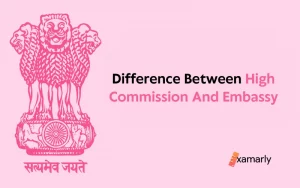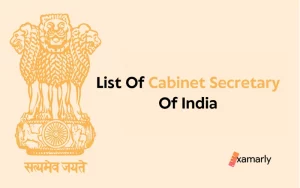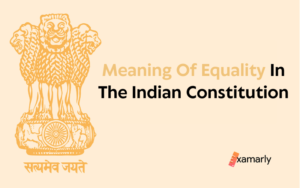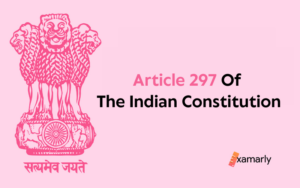Article 35A of Indian Constitution and its status concerning permanent residency in Jammu and Kashmir have been a relevant debate across India. To understand why Article 35A is in the news, we need to know more about Article 370 of Indian Constitution from which it was derived.
Article 370 was enacted by presidential order in 1954. It gave the state of Jammu and Kashmir a special status. This article enabled Jammu and Kashmir to draft their own Constitution and was a temporary provision.
In brief, Article 35A confers from Article 370 and defines the permanent residents of the state and their privileges. The fact that Article 35A is found in Appendix I, and not in the main body, makes it remarkable. Article 36 follows Article 35 in the Constitution, not Article 35A. Thus, the authority to define the permanent residents of the state lies within the state legislature of Jammu and Kashmir. It also provided the state legislature with the authority to define their unique fundamental rights and benefits under Article 35A of the Indian constitution.
What is Article 35A Of Indian Constitution?
Article 35A of Indian Constitution, which guarantees special rights and advantages to Jammu and Kashmir’s citizens, was enacted in 1954 when the Jawaharlal Nehru Cabinet advised President Rajendra Prasad. This article prohibits anyone from outside Jammu & Kashmir from working, settling, or acquisition of property in the state.
The full wording of article 35A of Indian Constitution by the Government of Kashmir can be seen below.
“Saving of laws concerning permanent residents and their rights. — Notwithstanding anything contained in this Constitution, no existing law in force in the State of Jammu and Kashmir, and law hereafter enacted by the Legislature of the State:
- defining the classes of persons who are, or shall be, permanent residents of the State of Jammu and Kashmir; or
- conferring on such permanent resident status any special rights and privileges or imposing upon other persons any restrictions as respects—
- employment under the State Government;
- acquisition of immovable property rights in the State;
- settlement in the State; or
- right to scholarships and such other forms of aid as the State Government may provide,
shall be void on the ground that it is inconsistent with or takes away or abridges any rights conferred on the other citizens of India by any provision of this part.”
Historical Background Of 35A Article
- The British rule over Jammu and Kashmir, which was a princely state. Owing to it being a princely state instead of being British colonial subjects, the inhabitants of Jammu and Kashmir became “state subjects.”
- The 20th century saw political movements that led to the establishment of a “hereditary state subject”. It became a political identity for Jammu and Kashmir’s citizens.
- It is often demanded by the people of the Kashmiri ethnicity that the Kashmir government is formed in such a way that people from Kashmir are only appointed to the Kashmir government.
- In response to growing public demand, the Maharaja of Jammu and Kashmir adopted a set of legal regulations between 1912 and 1932 to acknowledge these distinct statuses for Kashmir Reorganization.
- Thus, the state’s citizens are entitled to rights under articles that include holding government offices, owning land, and using land as they please. This special provision was not extended to non-state subjects.
- The Maharaja of Kashmir, Raja Hari Singh, handed over authority of defense, foreign affairs, and communications to the Government of India when Jammu and Kashmir joined the Union Government of India in October 26, 1947.
- The Indian Constitution’s Article 370 and the 1950’s Constitutional Order codified this link. It was issued by the President of India.
- The above-mentioned order provided Indian citizenship rights to state residents After the Delhi Agreement was accepted by the Jammu and Kashmir Constituent Assembly.
- The Presidential order of 1954 resulted in the addition of Article 35A in the Indian Constitution via constitutional amendments. Article 35A gave the authority of defining permanent residents and the rights they possess.
Significance Of Article 35A
- It was established primarily to preserve the State subject laws that had been formed and announced during the reign of Dogra ruler Maharaja Hari Singh in 1927 and 1932.
- It empowers the J&K legislature with the authority to define the state’s permanent residents, as well as their particular rights and benefits.
- The Article declares that no act of the legislature of the state covered by it can be challenged for breaching the Constitution or other laws, to ensure these exclusive rights and benefits.
Who Is This Intended For?
Those who were living in the state on 14 May 1954, or anyone who has lived in the state for at least 10 years at any point in time after, and had “lawfully acquired immovable property in the state.” will be considered permanent residents. The state legislature can also modify a permanent resident’s definition, or change any other aspects of the law, by a two-thirds majority of their approval.
What About Non-permanent Residents?
It also stated explicitly which benefits may not be provided to non-permanent residents. Non-permanent residents are not allowed to own property in Jammu and Kashmir. Ownership of property decides what sort of exclusive rights and benefits the person can exercise in the state.
That is, Article 35A asserts that:
- Only permanent residents can own immovable property in the state of Jammu and Kashmir.
- Any non-permanent member or a resident of another state cannot own property in J&K. Non-residents are not allowed to acquire immovable properties.
- Enrolling in any of Jammu and Kashmir’s educational institutions is not allowed for a non-permanent resident.
- The non-resident cannot work for the state government or have any government jobs.
- Non-residents cannot own property, vote, seek scholarships, or employment in the state.
- A woman who marries off to another state cannot hold permanent residency in Jammu and Kashmir. Her children will also lose their claim to the property.
Article 35A: Why Is It Being Discussed?
- The discussion arose after a petition was filed by a Kashmiri woman names Charu Wali Khan requesting a change in the provisions of Article 35A which denied succession rights to any Kashmiri woman who lives outside of the state and settled there.
- Following this, a counter-petition was filed by the state government.
- The Central government took up the matter, discussed it, and decided on the matter of removing Article 35A from being exercised.
What Are The Counter-Arguments To Article 35A?
- Arguments that assert the discriminatory nature of the article. Non-permanent residents being denied special rights is the larger debate here.
- Gender discrimination is yet another facet of this argument. That is if a male resident marries outside the state his property rights will remain intact. However, it is the opposite in the view of a female resident.
- Violation of the Indian constitution’s Article 14 which provides everyone equal treatment before the law. It also guarantees the protection of rights.
Arguments Of Those Not Supporting Scrapping Article 35A
- This provision protects the certain community from being dominated by elite and powerful outsiders. This protection is not merely cultural protection. It takes into account livelihood and economic opportunities.
- Scrapping Article 35A just because it affects the fundamental rights of other Indian citizens cannot be the ground to challenge it.
Article 35A Legal Issues
The following are some of the legal aspects of Article 35A:
- Opponents of Article 35A have pointed out that it was not added to the Constitution of India through the Article 368 amendment procedures. It was enshrined in the Constitution of India via an executive order signed by the Indian President, as such procedures should be implemented through the legislative branch. As a result, Article 35A breached the legal procedures outlined by the Constitution.
- Article 35A’s characterization of who is or is not a permanent resident is in contravention of Article 14 of the Constitution (Right to equality before the law). Any Indian citizen, whether a citizen of Jammu and Kashmir, either permanent or temporary, has the same rights and advantages as the rest of the country.
- Article 368 states that any adjustments or modifications must be made through parliamentary procedures. Article 35A’s legitimacy has been challenged as the motion to add it was not presented to the parliament. Instead, it was conveyed directly to the Indian President.
Article 35A’s Current Status
The Central Government has revoked the special status provided to Jammu and Kashmir under Article 370. This resulted in the applicability of the whole Indian Constitution to the state. This was done with a presidential order on 05 August 2019.
After this article 35A of the Indian Constitution was no longer valid. In addition, the Indian Parliament issued legislation reorganizing the state. After the reorganization, the state is bifurcated into two union territories. The newly formed union territories are the Union Territory of Jammu and Kashmir and the other is Ladakh as an individual union territories.
Also Read: Article 370 Advantages And Disadvantages
Conclusion
Knowing the historical, geographical, and political significance of these constitutional provisions and the further developments resulting in its scrapping is essential mostly owing to the sensitivity and complexity of the issue at hand. The decision to cancel the special status granted under Article 370 is historical. The consequences of this decision and developments will shade the identity and influence the politics and culture of Jammu and Kashmir.






